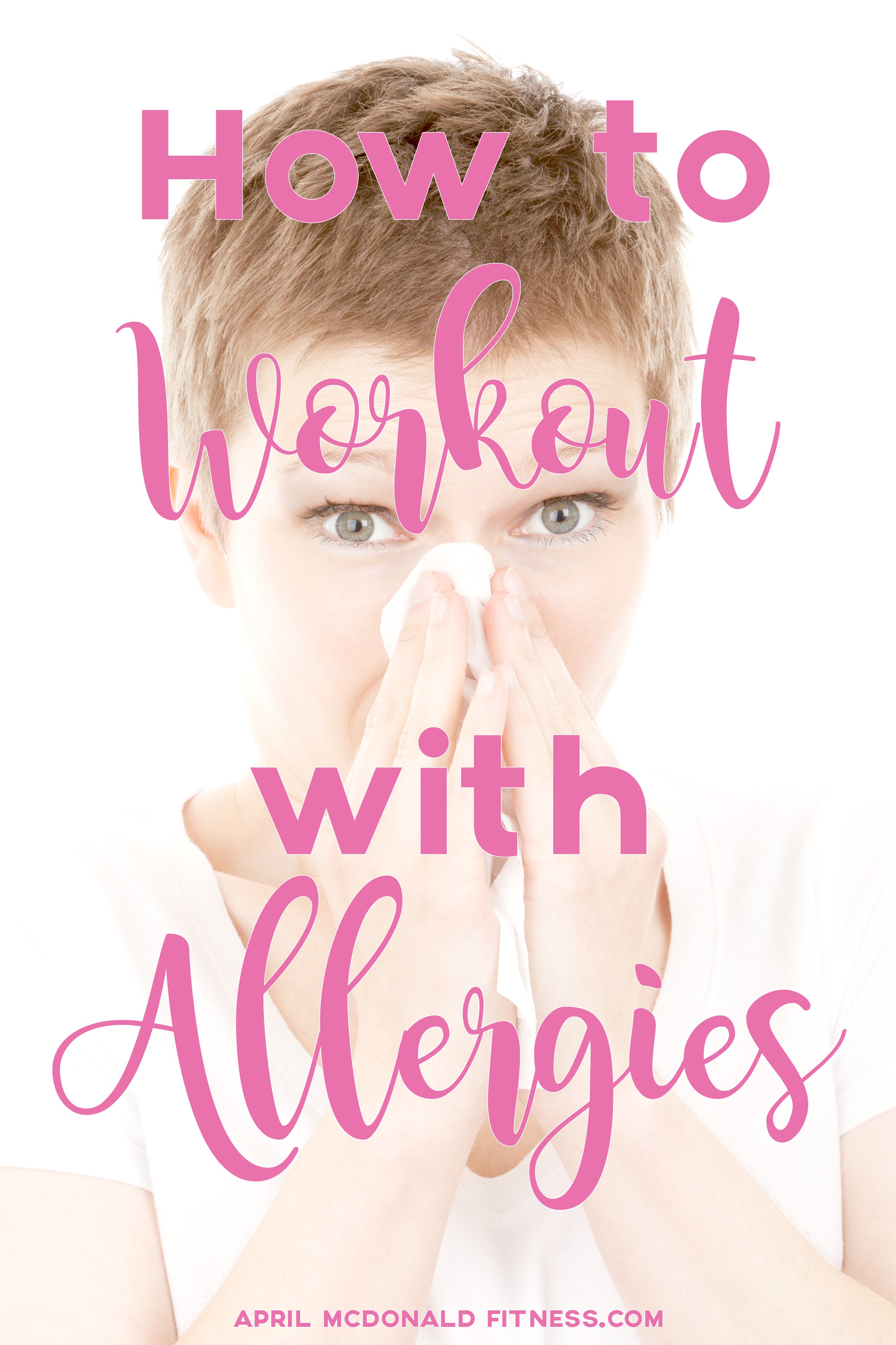Did you know one of the biggest excuses for not exercising or working out in the spring and summer (besides the infamous “it’s too hot!”) is they can’t because of their allergies?
Bull crap.
Don’t let your allergies take control of your physical health and your life. They don’t own you. You can beat them and still work out. It’s easy. And, working out might even help improve your allergy situation!

How working out helps allergies
When you work out, your cardiovascular system also works out and improves. Your heart and your lungs get stronger. You are able to breathe better, take deeper and longer breaths, and feel more rejuvenated. You get more energy when you workout.
Also, according to Total Gym Direct, when you regularly workout, it helps improves your blood flow, which helps to remove allergens. You can’t exercise away your allergies, but you can help to minimize your symptoms.
Tip #1 Know your triggers
Get to know your allergies. What exactly are you allergic to? What aggravates them? Do you have asthma as well? Is it associated with your allergies? Where are the allergies the worst: do you live in a dusty desert, a smoggy city, or a plant-filled forest? Do you get irritated in gyms with sweat, and dust, or does being outside kill you with pollen? Make sure you also pay attention to what materials your gym clothes are made of. If you have a cotton allergy or sensitivity, don’t buy those clothes! Or, if you are allergic to chlorine, don’t swim in public pools often.
Tip #2 Watch the weather
Seriously, watch the weather. Weather.com has pollen alerts for each zipcode. Make sure you check that, as well as the air quality to determine if you should workout outside or inside. And, be flexible. If you don’t like working out inside, try to find an at-home workout plan that you enjoy. If you hate being outdoors, sorry, but try to learn to love it. Think of all the other health benefits besides just working out (*cough* Vitamin D). Also, keep in mind the time of day–do you breathe better in the morning or at night?
Is it humid…do you live in the South, like I do–boy it gets humid here in the summer. Learn to love the humidity! The wet air actually helps your lungs! Dry air constricts your airways. So, when you workout outside in the humidity, yes, you’ll be drenched, sweaty, and sticky, but you will actually be able to breathe better and it will help your asthma!
Tip #3 Talk to your Doctor
Make sure you know exactly what your allergies are and the extent of your asthma. Talk to you doctor about your healthy plans and physical goals. Make sure that you are cleared to exercise. Discuss what intensity of workouts would best benefit you. Ask about any medication that you should take.
Tip #4 Stay on top of your meds!
You should actually be doing this even if you aren’t working out! Even if the air quality is good, make sure you continue to take your allergy medications. Always, always, always take your inhaler before your workout. And, make sure to have it with you during your workout just in case of an emergency.
Tip #5 Pick the right exercise for you
Focus on the exercises that help you breathe better. Breathe through your nose during workouts, rather than your mouth, because it helps get rid of allergens (that’s what nose hair is for!).
Dr. Jay M. Portnoy, division director of allergy, asthma, and immunology at Children’s Mercy Hospitals in Kansas City, says Allergies trigger asthma, making it much more difficult to exercise. It’s recommended that people with asthma take up swimming as an aerobic activity. The reason that exercise makes asthma worse is because the airways dry out and get cold when you’re breathing really fast. If you’re swimming instead of running outdoors, then there’s more moisture and warmth so you’re less likely to have trouble breathing.”
Tip #6 Listen to your body
Listen to your body. If it’s had enough, it’s had enough. Don’t overdo it and cause an asthma attack. It’s important that you continue being able to breathe easily. Make sure you warm up, stretch, and cool down to help you manage your breathing. After you workout, it also helps to take a steamy shower (followed by cooler water). The steam will help open up your airways so you can catch you breathe. The cool water will help to continue to loosen any mucus in the sinuses and the lungs.
Do you have allergies? How do you handle them while you exercise?







